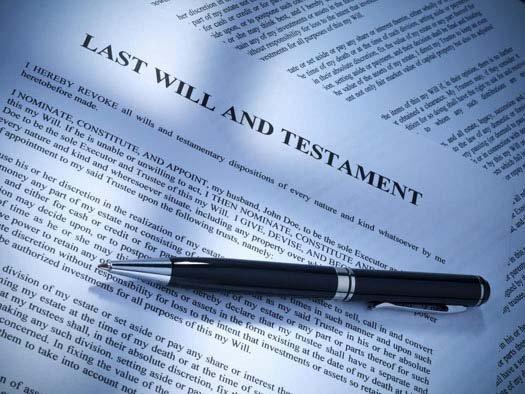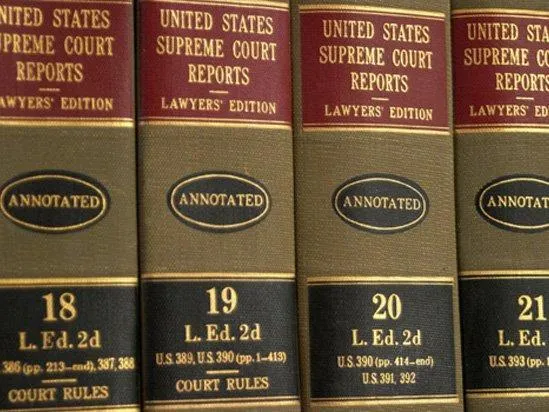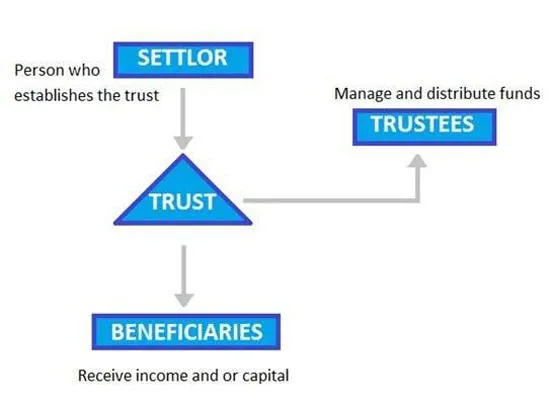Texas Estate Law
ESTATE PLANNING — CHESS, NOT CHECKERS
The Most Common Will Planning Mistakes and How to Avoid Them
Common Will Planning Mistakes: How to Avoid Them
Most Common Will Planning Mistakes: How to Avoid Them
Do you want to ensure your will is legal and issue-free? If so, find out what are the most common will planning mistakes and how to avoid them.
Keyword(s): will planning
As adults, we tend to focus on our future life, constantly planning and revising where we see ourselves headed. However, the imminent scenario of death requires some attention as well.
Your will ensures that your assets fall into the proper hands when you pass away. Proper will planning eliminates problems for your loved ones later on.
Will Planning Mistakes to Avoid
Do not make mistakes that will leave your grieving loved ones with a headache later on. Keep reading to learn common and avoidable planning mistakes.
Not Planning at All
Many people push off even creating a plan because they feel too young to think about it. This might be the biggest mistake of all. We never really know when tomorrow will stop coming for us.
All adults should create a will to save their loved ones from chaos during a heartbreaking time. If you own a home, then create an estate plan will. Even if you do not own much, creating a will can save family members from fighting over keepsake items.
Failing to Keep it Updated
Families grow and shrink. Whenever this happens, you want to make sure that you put a new child into the will or take a deceased loved one out fairly quickly.
Your assets may frequently change as well. Regularly updating the will guarantees that everyone and everything important makes their way into this important document.
Overlooking a "What-If" Plan
For instance, what if you and your spouse die together in a tragic accident? Then, who receives the assets? Make sure you note this for your business, estate, and other important assets to avoid mistakes.
You may also want to name somebody else on the will in case somebody passes away after you. For instance, you may want your home to go to your child whenever your spouse passes away, to avoid a new spouse from overtaking a family asset.
Giving Taxing Gifts
Make sure that the person can afford whatever you leave them. The IRS sets a gift tax. If you leave items valued over $14,000, then the person must claim them on their taxes and pay up to 40%.
This brings up one of the most common estate planning mistakes. Putting your child's name onto the deed can put them into debt. In your estate plan, give the home to your loved one as an inheritance to avoid this tax.
Forgetting About Intangible Assets
We live in a digital age. You want to include intangible assets like important research, business data, and logins with passwords for social media accounts for your loved ones to protect your work and personal business. It will also give them the option to delete or memorialize your accounts.
Not Meeting with a Professional
You might think that you already know who gets what. However, it is not always that cut and dry. A legal professional can help you navigate this process too keep everything legal and avoid estate issues.
Hire an Attorney to Help You Plan Your Will
Will planning should happen now. Don't wait until it's too late.
We want to help ensure that your loved ones inherit treasures and not headaches. Contact us to help plan your will and estate plan today!
What Is a Medical Power of Attorney and Do You Need One?
What Is a Medical Power of Attorney and Why Do You Need One?
What Is a Medical Power of Attorney and Why Do You Need One?
You may have heard of a power of attorney. But what is a medical power of attorney? We take a closer look at exactly what it involves.
Keyword(s): medical power of attorney
What if you were rendered unconscious, and doctors wanted to perform surgery on you? What if your elderly parent suffered from dementia and yet needed certain medical procedures performed?
These hypothetical situations are why having a medical power of attorney in place is so important. You never know when you or a loved one may be unable to make important medical decisions.
By having a medical power of attorney in place before a crisis, you can rest assured that someone you trust will make those crucial decisions on your behalf.
Here are four important facts you need to know about POAs in Texas. They may come in handy for when you least expect it.
1. Everyone Should Have a Medical Power of Attorney
If you have an aging relative, you should definitely advise them to put a medical POA in place in case they are ever physically or medically incompetent to make decisions regarding their own healthcare.
A medical power of attorney is a document, signed by a competent adult designating someone they trust to make health care decisions on their behalf should they become unable to make such decisions.
While medical POA is one important document that seniors should put in place as part of their overall estate planning, you do not have to be elderly to have one. Unfortunately, illness and injuries can happen at any time.
It's better to be safe than sorry and have one of these documents in place. Its especially important if you have firm religious or other convictions regarding your healthcare that you want to be sure are obeyed in case you are unable to speak for yourself.
2. Medical Power of Attorney is Not the Same as Durable Power of Attorney
Medical POA is just that- it only pertains to medical decisions. Durable power of attorney extends to the right to handle other decisions including financial ones. If you have a durable power of attorney, you will have the ability to pay bills and sign agreements on behalf of a disabled or elderly person.
Durable POA lasts until the principal says it is over. Medical POA, on the other hand, lasts only through the perosn's period of incompetency. If they get better, a doctor may determine they are now able to make their own healthcare decisions.
3. Medical Power of Attorney Does Not Incur Financial Liability
You are not liable for the person's medical bills when you hold their medical power of attorney.
You are only liable for their financial obligations if you are a party to the debt: for example, if you and your spouse are both on the mortgage, you will still be liable for payments even if she becomes incompetent.
4. Medical Power of Attorney Does Not Negate the Need for a Living Will or Will
You can designate someone else to make healthcare decisions for you, but if you have strong opinions on your end of life care, you will be best protected if you also have a living will.
Also known as an ‘advance directive,’ a living will allows you to clarify your end of life wishes such as whether or not doctors should use extreme measures to prolong life.
Neither of these documents has any impact on the distribution of your property after death. For that, you need to consult an attorney on your last will and testament.
Consult an Attorney about Medical Power of Attorney
If you have concerns about your future ability to control your healthcare decisions, you will feel better if you designate a medical power of attorney. If you have concerns about a relative who may soon need to have such decisions made on her behalf, talk to an attorney to see if this is a possible avenue for you both as well.
For more information on POAs, wills and other matters, contact us. We can help.
Benefits of Consulting an Estate Lawyer for Estate Planning
Benefits of an Estate Lawyer for Estate Planning
Benefits of Consulting an Estate Lawyer for Estate Planning
Estate planning involves more than just writing a will. In fact, it's an incredibly complicated process. Here's why you should hire an estate lawyer to help.
Keyword(s): estate lawyer
Does the thought of your beloved home being sold at auction bring tears to your eyes? Would your heart break if your favorite daughter didn't receive your wedding rings?
Well, without drafting a will and creating an estate plan, this is exactly what happens. The state where you reside takes control over all your assets following your death, leaving you no control over your keepsakes or property.
If you don't have a will or aren't sure where to start, an estate lawyer can help. Here are 5 reasons to hire an attorney and plan for life after you're gone.
1. Estate Planning is Complicated
You're not an estate lawyer. Which means drafting your own will and estate plan can be a complicated business. Every word and phrase included in the documents are subject to scrutiny.
There are certain DIY projects that are therapeutic and fun to complete. Writing your own will and estate plan isn't one of them. The process is best left to the professionals who are trained in drafting and finalizing legal documents.
Another thing to consider is the fact that state laws surrounding wills and estate planning are constantly changing. Your estate lawyer will be up to date on the most recent laws and how they affect your future.
2. An Estate Lawyer Saves You Money
You may think that drafting your own will and estate plan is cheaper than hiring an estate lawyer. But the truth is, hiring a lawyer will actually save you money in the long run.
Hiring an attorney is a one-time, flat fee. You know exactly how much you're paying and what you're getting in return. When you go it alone, you run the risk of paying court costs, additional taxes, and other professional fees.
3. Estate Lawyers Are Unbiased
One of the hardest parts about will and estate drafting is fairly dividing your property and assets. Your family and loved ones will all have an opinion about what you should do. This can get overwhelming and downright ugly.
Your estate lawyer has no vested interest in your assets or property, other than carrying out your wishes. Your attorney will offer unbias advice and guidance. This takes the emotional aspect of trying to please your family out of the equation.
4. Estates Are Settled By (Other) Lawyers
After you leave this life, it'll be time to look over your will and estate plan. This process is done by lawyers. Lawyers, just like your estate lawyer, who know exactly what they're doing and looking for.
A state judge will review your estate paperwork to make sure it's valid. Writing it yourself, without legal guidance, could result in complications for your family. Having a professional attorney oversee the planning, streamlines the review process.
5. Save Yourself Time and Aggravation
The biggest reason to hire an estate lawyer is to save you time and aggravation. Let's face it, writing a will and estate plan is straight up hard! Especially if you lack the experience or knowledge to get the job done.
And that's just the initial writing of the documents. Forget if the will or estate end up in probate where a court determines it's validity. The entire process of drafting a will and estate plan can be extremely stressful. Best to leave it to the professionals.
Hire an Estate Lawyer and Rest Easy
When the end of your time here on earth comes, the last thing you or your family should worry about is what will happen to your assets. Hiring an estate lawyer will put your mind at ease so you can focus your attention on your loved ones.
If you're ready to plan your estate and start living life, contact us today!
Revocable vs Irrevocable Trusts: Which Option is Right for You?
Revocable vs Irrevocable Trusts: Which Option is Right?
Revocable vs Irrevocable Trusts: Which Option is Right?
Are you planning for the future? Do you know the difference between a revocable vs irrevocable trust?
Keyword(s): revocable vs irrevocable trusts
The revocable vs irrevocable trust debate is one worth having. Unfortunately, the majority of Americans never make it that far as six-in-ten still lack an estate plan of any kind.
But once you mobilize the creation of your estate plan, it's time to consider the difference between revocable and irrevocable trust planning. In the following article, we'll examine the advantages of each, and hopefully, it will help you decide what's best for your situation. Let's begin!
Defining a Revocable Trust
A revocable trust puts you in charge of the income until your death. After this, it transfers to the beneficiaries you've set forth.
It gives you the freedom and control over your earnings while you're alive. It ensures your funds stay out of probate when you die. Many are drawn to it for its "win-win" aspects of serving you during life and protecting your loved ones from the nightmare of red tape if you die intestate (or without an estate plan).
And an Irrevocable Trust
In an irrevocable trust, you remove assets from the reach of others, yourself included. This has an advantage in that creditors are unable to pursue your earnings if you are legally vulnerable.
An irrevocable trust keeps creditors from being able to swoop in and claim your estate. This offers you peace of mind while alive and ensures loved ones will be cared for in the event of your death.
How Do They Handle Asset Protection?
A revocable living trust gives you absolute control while you're alive. You decide who your beneficiaries are. You use your money as you need it while protecting it for their later use.
And this is not exclusive to death. If you should experience a debilitating injury and later recover, the trust can give your beneficiaries the ability to act on your behalf. But once you've recovered, it allows you to reclaim control.
An irrevocable trust removes that degree of control. While that may not sound as appealing, there are good reasons to set your estate plan up with one of these.
If you are in a position that invites significant legal attention, an irrevocable trust will limit the abilities of your detractors to go after you. Same with creditors.
But it's not a Get Out of Jail Free Card either. You cannot simply set one up to avoid liability if you're in the middle of an impending or existing lawsuit.
Which Is Better at Reducing Your Estate Tax?
The question of what is a revocable trust often comes with questions about estate tax vulnerability. Yes, it's included in the value of your estate when you die, thus making it susceptible to taxation.
Irrevocable trusts remove the assets from your inventory, so to speak. This reduces the size of your estate and, thus, the amount open to taxation. It's often a choice for people who resent paying taxes.
Which One Wins the Revocable vs Irrevocable Trust for You?
If you are ready to settle the revocable vs irrevocable trust debate, then you need a qualified attorney well-versed in estate law to help. This is where we can help.
Contact us today if we can help you set up a trust or create your estate plan. For more information on trusts, click here.



